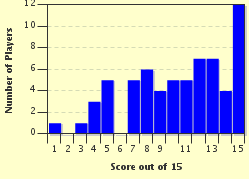Quiz Answer Key and Fun Facts
1. "Ghost in the Machine," the title of The Police's fourth studio album, is taken from the title of Arthur Koestler's 1967 literary work.
2. What is on the album cover of The Police's "Ghost in the Machine"?
3. In what year was The Police's fourth album "Ghost in the Machine" released?
4. Which hit from The Police's "Ghost in the Machine" album contains the following lyrics: "Where does the answer lie? / Living from day to day / If it's something we can't buy / There must be another way"?
5. Which of the following songs from The Police's "Ghost in the Machine" album does not include Sting's playing the saxophone?
6. Which single from The Police's "Ghost in the Machine" album contains the following lyrics: "And on the days that followed / I listened to his words / I strained to understand him / I chased his thoughts like birds"?
7. Which hit from The Police's "Ghost in the Machine" album is about the trouble in Northern Ireland and contains the following lyrics: "And they're only gonna change this place / By killing everybody in the human race / And they would kill me for a cigarette / But I don't even wanna die just yet"?
8. Which song from The Police's "Ghost in the Machine" album pokes fun of our media-mad society and contains the following lyrics: "Overkill, overview / Over my dead body / Over me, over you / Over everybody"?
9. Which song from The Police's "Ghost in the Machine" album was composed by Andy Summers?
10. Which song from The Police's "Ghost in the Machine" album contains the following lyrics: "The third world breathes our air tomorrow / We live on the time we borrow / In our world there's no time for sorrow / In their world there is no tomorrow"?
11. On the album "Ghost in the Machine" by The Police, which song is the result of the collaborative work of both Sting and Stewart Copeland?
12. What song from The Police's "Ghost in the Machine" album is sung almost completely in French?
13. Which song from The Police's "Ghost in the Machine" album would Sting remake during his solo career for a 1993 film starring Sylvester Stallone, Wesley Snipes, and Sandra Bullock?
14. Which hit from "Ghost in the Machine" includes a significant piano accompaniment played by Jean Roussel, one of the few guest musicians ever recorded on one of The Police's studio albums?
15. Who replaced Nigel Gray and began co-producing The Police's albums with "Ghost in the Machine"?
Source: Author
alaspooryoric
This quiz was reviewed by FunTrivia editor
agony before going online.
Any errors found in FunTrivia content are routinely corrected through our feedback system.

